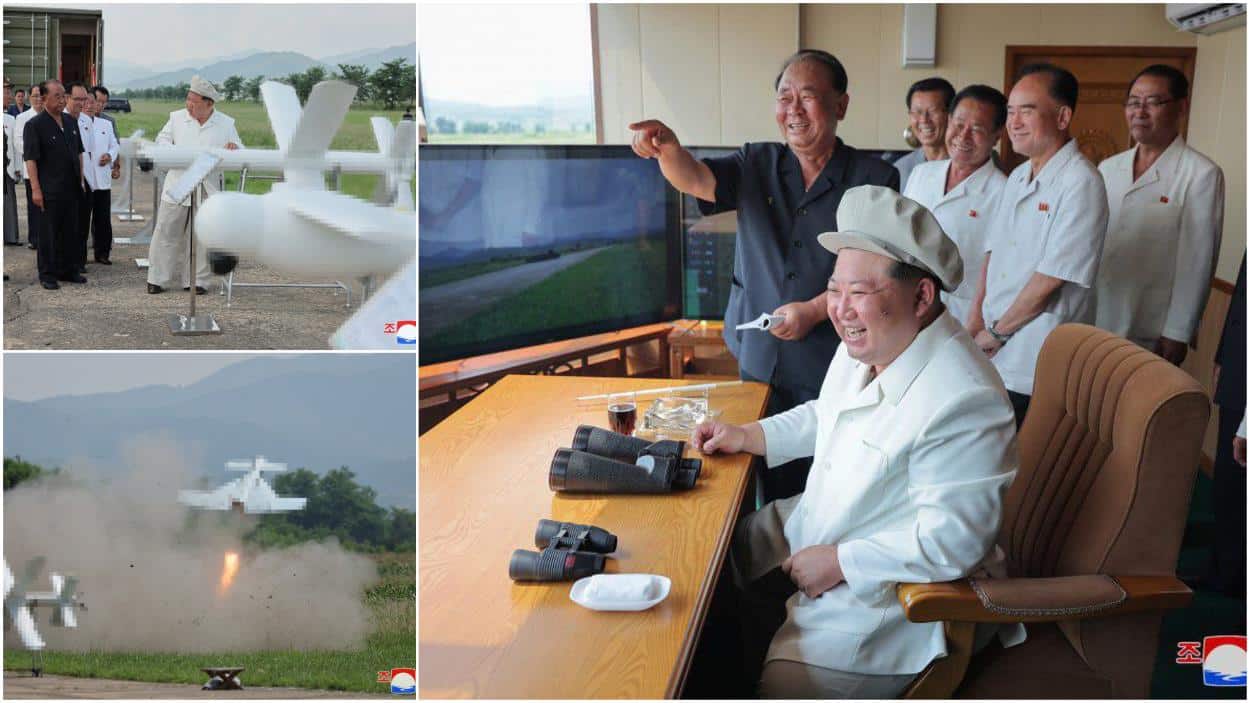State media reported on Monday that North Korea recently showcased a new “suicide drone” during a performance test that leader Kim Jong Un attended.
According to the Korean Central News Agency (KCNA), he expressed the need to expand the production of such drones alongside strategic reconnaissance and multi-purpose attack drones.
Suicide drones, which carry explosives and crash deliberately into targets, serve as guided missiles. KCNA noted that North Korea’s drone fleet, which includes nuclear capabilities, will target enemies on both land and sea across varying ranges.
During the tests conducted on August 24, all drones successfully hit their designated targets following preset flight paths. Kim also emphasized the integration of artificial intelligence in drone development to enhance capabilities.
Experts have observed that the drones displayed in the state media bear resemblances to the Israeli-made “HAROP,” the Russian-made “Lancet-3,” and the Israeli “HERO 30.” It is speculated that North Korea may have obtained these technologies from Russia, which might have acquired them from Iran, suspected of securing the technology through hacking or theft from Israel.
Read: Putin’s Landmark Pyongyang Visit Strengthens Russia-North Korea Alliance
Cho Sang-keun, a professor at South Korea’s Korea Advanced Institute of Science and Technology, noted that similar drones could travel over 1000 km (about 600 miles), posing a substantial threat to South Korea’s national security and critical infrastructure. Cho highlighted the strategic and tactical capabilities demonstrated by North Korea with these drones, which could inflict significant damage on South Korean forces in case of conflict.
In 2022, North Korea deployed drones across the border that South Korean military defences failed to intercept due to their small size. South Korea launched a drone operation command in 2023 to counter the escalating threat.
Read: North Korean Official Criticizes US Military Aid to Ukraine, Supports Russia
The longstanding alliance between Pyongyang and Moscow, dating back to North Korea’s founding post-World War II, has strengthened since Russia’s 2022 invasion of Ukraine. Both the United States and South Korea have accused North Korea of supplying ammunition and missiles to Russia for the conflict in Ukraine.






